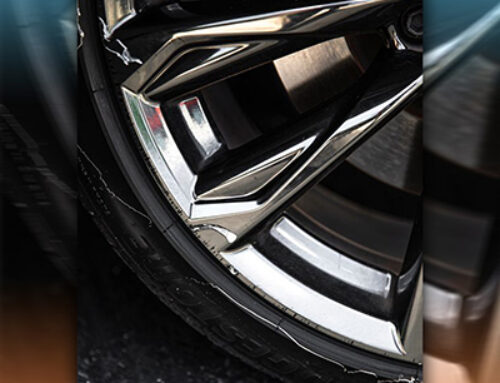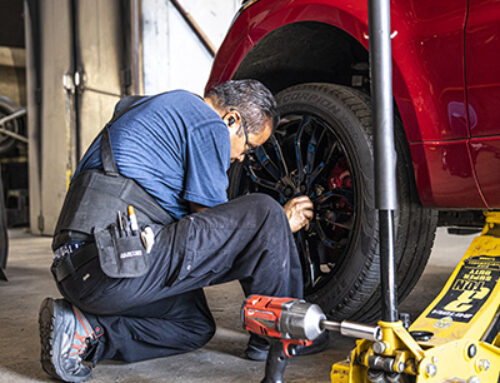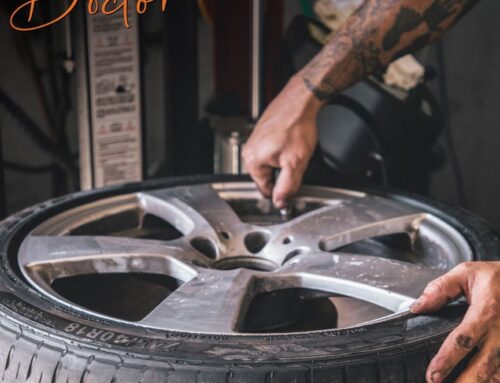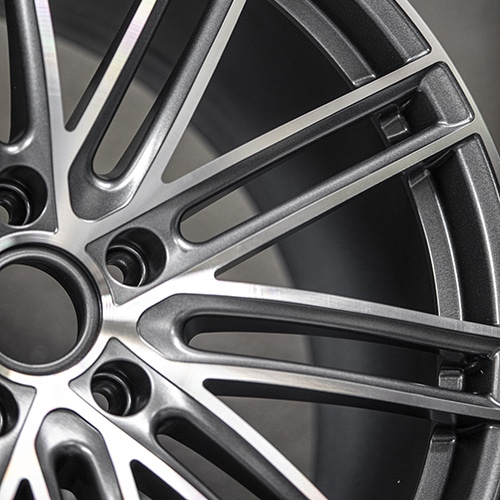
The Essential of Alloy Wheels: Composition, Care and Local Repair
How to Know if Your Wheels Are Made from Alloy
If you’re wondering whether your vehicle’s wheels are made from alloy, there are a few easy ways to determine that. Alloy wheels, sometimes referred to as rims, are made from aluminum or magnesium alloys. They offer performance advantages over steel wheels, though they generally cost more too. Here’s what to look for when identifying alloy wheels:
Check the Wheels Visually
Alloy wheels often have a shiny, metallic gray appearance, whereas steel wheels typically look black or silver. Examine the surface of each wheel for its color and luster. If they have a brighter, shinier finish, they are likely made from alloy.
Feel the Weight
Alloy wheels tend to be lighter than steel wheels of the same size. Compare the weight of your vehicle’s wheels to stock steel wheels, either by directly weighing them or simply hefting them in your hands. The lighter they feel, the greater the likelihood that they are alloy.
Look for Brand Markings
Manufacturers frequently place stickers or stamp logos on alloy wheels to identify that they have been tested and certified. Check the inner and outer surfaces of each wheel for any markings from common alloy wheel brands like BBS, Enkei, or Konig. The presence of a sticker signals alloy construction.
Check Your Tire Placard
Vehicles with alloy wheels often state that requirement directly on their tire placard or owners manual. Examine your placard, generally located on the driver’s side front door jamb, for any callouts requiring alloy wheels. If specified, your vehicle likely comes standard with alloy wheels from the factory.
Ask Your Mechanic
Get a professional opinion when identifying your wheels. Your mechanic can provide definitive confirmation of your wheels’ construction material and factories specifications for your exact vehicle make and model. Consider having them inspect your wheels when changing tires or performing routine maintenance.
By using one or more of these techniques, you can determine with certainty whether those shiny rims spinning on your car are quality alloy wheels versus standard steel wheels. Proper identification helps ensure any future repairs or replacements use wheels made of the same material.
What are Alloy Wheels?
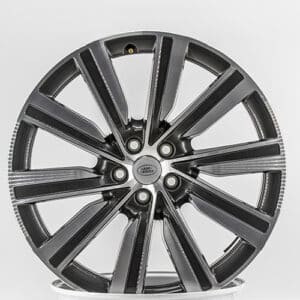
Lighter Weight
Alloy wheels weigh significantly less than equivalent steel wheels, shaving off unsprung weight to help improve acceleration, fuel economy, and suspension response. A lighter wheel puts less strain on other components like wheel bearings and shocks.
Increased Strength
The metals used in alloy wheels are highly resilient to shocks from potholes or impacts. Their intrinsic strength allows thinner, more complex designs that maintain durability without excess heft. This protects wheels from cracking or warping during everyday use.
Better Heat Dissipation
Alloy transfers heat away from brakes more quickly than steel for improved cooling. This enables harder more repetitive stops without brake fade and maintains an even vehicle temperament in all conditions. Proper cooling reduces wear on pads, rotors, and calipers.
Enhanced Corrosion Resistance
Alloys like aluminum are inherently more resistant to rust, salt, acids, and other corrosion issues. That protects the structural integrity and extends the lifespan of both wheels and mechanical parts behind them versus ordinary steel components.
Greater Design Options
Alloy wheels permit more aesthetic creativity through molded shapes with thinner spokes or negative spaces not possible on steel wheels. Owners can select eye-catching styles to personalize a vehicle’s attitude and image.
By exploiting the stronger, lighter properties of metals like aluminum and magnesium, alloy wheels deliver measurable performance, durability, and visual advantages over traditional steel wheel designs.
Alloy Rim Repair Shops Near Me
Bent or cracked alloy wheels aren’t uncommon, but it can be challenging to find qualified local shops to repair that delicate damage. Rather than automatically replacing your high-end wheels, specialized technicians can frequently restore alloy rims to like-new condition through refinishing or reconditioning services.
I searched my area for the top-rated alloy wheel repair facilities and found Wheels Doctor Miami to have exceptional service. As one of the foremost alloy rim repair shops in Miami, they offer affordable repairs with quick turnarounds and quality guarantees. Their skilled technicians straighten, weld, recondition, and refinish alloy wheels of all sizes back to factory specifications.
 Wheels Doctor has years of hands-on experience servicing alloy wheel damage. Their metro location also makes drop-offs and pickups simple for Miami-Dade and Broward county residents requiring wheel repairs. They stock hundreds of sizes and styles of alloy rims if replacement becomes necessary.
Wheels Doctor has years of hands-on experience servicing alloy wheel damage. Their metro location also makes drop-offs and pickups simple for Miami-Dade and Broward county residents requiring wheel repairs. They stock hundreds of sizes and styles of alloy rims if replacement becomes necessary.
To start the repair process, either bring your vehicle in for inspection or send clear photos of wheel damage to their online portal for estimates. Wheels Doctor provides written quotes upfront, so you only pay the agreed pricing with no hidden charges. They stand behind all repair work with sturdy nationwide warranties as an assurance of quality service.
Give those cherished alloy rims a second life through professional repairs from Wheels Doctor. Their technicians diligently restore wheels to safely handle the curves of South Florida roads for less than complete replacements. To learn more about reconditioning and refinishing for alloy wheels, contact info@wheelsdoctor.com or call 305-964-7909.
Frequently Asked Questions
✅ Are alloy wheels better than steel wheels?
➡️ Yes. Alloy wheels are lighter, dissipate heat better, resist corrosion more effectively, and offer improved performance and design options compared to steel wheels.
✅ Can alloy wheels be repaired if they are bent or cracked?
➡️ In many cases, yes. Minor bends and small cracks can often be repaired by specialized alloy wheel repair shops. Severe structural damage may require replacement.
✅ How do I know if my alloy wheel damage is repairable?
➡️ A professional inspection is required. Cosmetic damage, curb rash, and minor bends are usually repairable, while major cracks or heavy deformation may not be safe to fix.
✅ Do alloy wheels require special maintenance?
➡️ Alloy wheels benefit from regular cleaning, avoiding harsh chemicals, maintaining proper tire pressure, and promptly addressing curb or pothole damage to prevent worsening issues.
✅ Are alloy wheel repairs cheaper than replacement?
➡️ Yes. Repairing alloy wheels is significantly more cost-effective than replacing them, especially for high-end or custom rims..
✅ How long does alloy wheel repair usually take?
➡️ Most alloy wheel repairs can be completed within the same day or 24–48 hours, depending on the severity of the damage and the refinishing required.

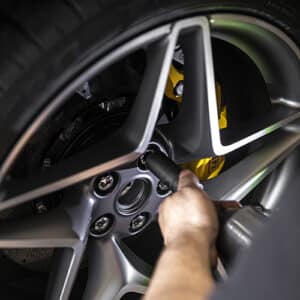 Wheels Doctor has years of hands-on experience servicing alloy wheel damage. Their metro location also makes drop-offs and pickups simple for Miami-Dade and Broward county residents requiring wheel repairs. They stock hundreds of sizes and styles of alloy rims if replacement becomes necessary.
Wheels Doctor has years of hands-on experience servicing alloy wheel damage. Their metro location also makes drop-offs and pickups simple for Miami-Dade and Broward county residents requiring wheel repairs. They stock hundreds of sizes and styles of alloy rims if replacement becomes necessary.